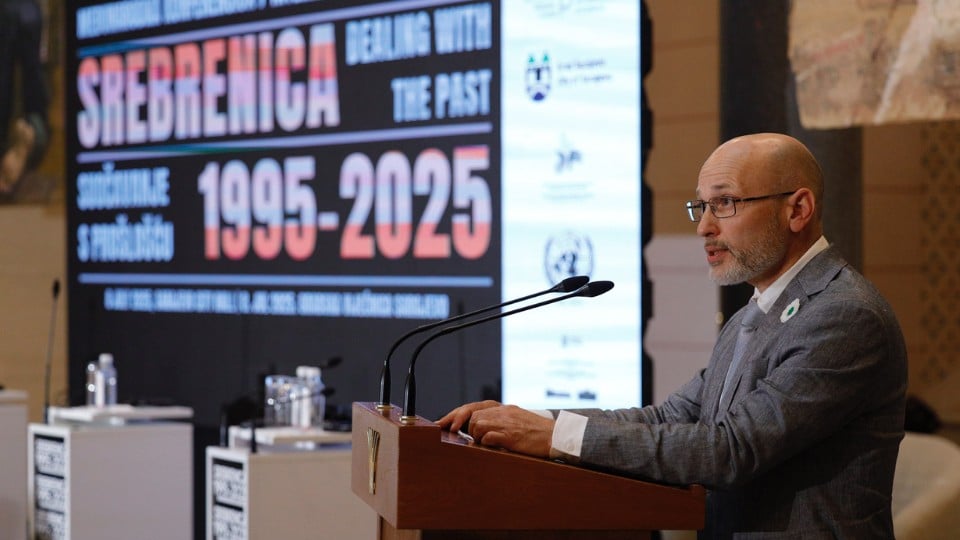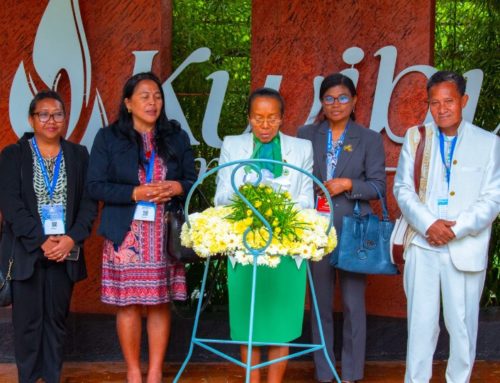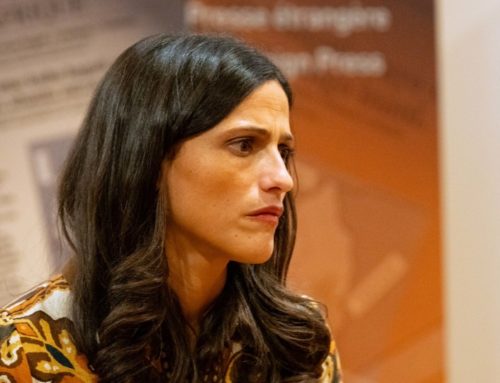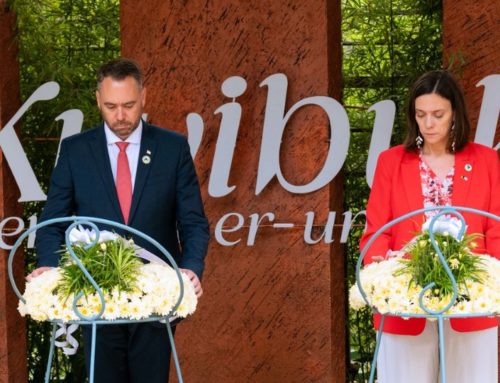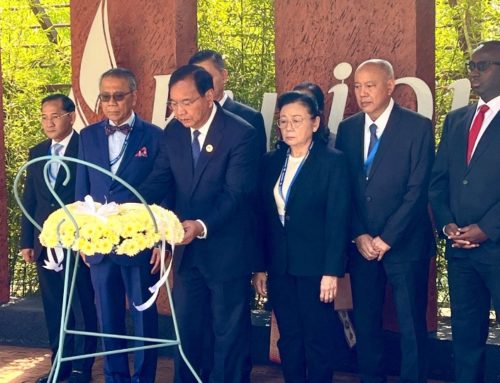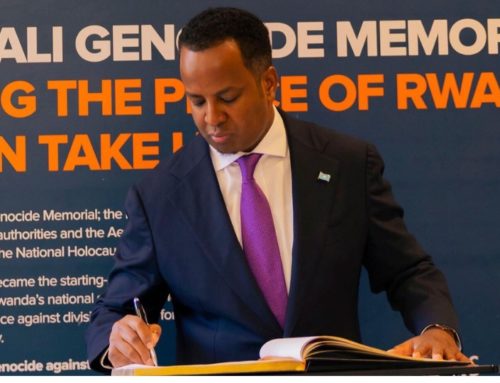Aegis Trust Founder Dr James Smith this morning addressed the conference ‘Srebrenica: Dealing with the Past’, hosted in Sarajevo by the Post-Conflict Research Centre to mark thirty years since the Srebrenica Genocide. This is the speech he delivered, speaking in Sarajevo City Hall.
Good morning. I won’t take up too much of your time, nor repeat the words of others who have already spoken so eloquently. I’ll limit myself to making two points.
None of you would be here if you had not been failed. Thirty years ago, in Srebrenica and Žepa, you were failed. From Omarska to the rape camps in Foča, we in the international community collectively failed you.
Thirty-three years ago, as Mladic sought to shell you to the edge of madness, and when this now magnificently rebuilt building burned to the ground and the ash of thousands of priceless documents took to the sky, we failed you here in Sarajevo too.
And yet you continue to reach out to us, to include us; to invite us to participate in events such as this, and to partner with you. You might not realise it, but that in itself, if not a process of forgiveness, is a massive act of conciliation which does not go unappreciated. While I had no decision-making powers to change British policy, it is nonetheless humbling. Humbling to be accepted here, after such catastrophic failure. And all I can say in response is thank you.
Thank you to the city of Sarajevo, that you welcome us without judgement. Thank you, Velma, and the Post-Conflict Research Centre, for inviting me. I have enormous respect for everything that you do.
Thank you to the rest of the NGO community here, not only for what you achieve with limited resources and demanding conditions, but for the endless patience that you display in constantly educating the rest of the world. Thank you to the lawyers present for establishing truth and accountability in the fight against impunity. It’s an exhausting job, a constant labour, explaining to foreign donors, researchers and others, hoping that perhaps on in a hundred people will understand you.
Thank you to the donors. I hope in a time when funding for memory, peace and development is being eroded, even slashed, worldwide, that international representatives here will redouble your effort to convince governments and multilateral agencies, for the sake of humanity, that now is not the time to pull back.
Thank you to the leadership of the Srebrenica Genocide Memorial Centre; Emir, Amira, Hassan and others who have made it the world class institution it needs to be. Thank you for inviting the organisation that I represent, Aegis Trust, to partner with you. On behalf of my colleagues in Rwanda, survivors of the 1994 Genocide against the Tutsi, I bring a message of profound care and solidarity. They too are working to repair immeasurable damage and restore sustainable peace and reconciliation. They, too, still survive day by day, and they are with you today.
Thank you to the Mothers of Srebrenica for being the constant voice to our conscience for three long decades now, refusing to let us forget the vastness of your pain and loss that is so powerfully depicted in this art installation. Pain which I know does not pass with time. Thank you that despite the failure of our governments to protect your sons and husbands, you continue to share with us, educate, serve and guide us.
From Rwanda, the head of Kigali Genocide Memorial, Aegis Trust CEO Freddy Mutanguha, and Alice Nderitu, the former UN Under-Secretary General and UN Special Advisor on Genocide Prevention, who is now the leader of the Isōko Centre for Humanity in Rwanda, have asked me to tell you that your friends in Rwanda and Aegis Trust will do all in our power to join you in the fight against denial and the forces that seek to both erase and repeat all that took place.
We will do our best to promote your voices, your ideas for peace and justice abroad; your solutions. It should be us who build bridges to you, to try and meet you where you are, and understand you and support you. But in thirty years that I’ve spent working with genocide survivors, second and third generation survivors, and wider victim communities, my observation is that despite some of the best efforts of ourselves and well-meaning partners, that much of the burden of rebuilding rests with you.
Sometimes you must question whether you make any difference. You do. There would be no chance of sustainable peace without you. You must sometimes feel weary. Please, don’t stop. Don’t give up. The world is becoming more insular, divided and dangerous. You’ve stood strong for thirty years. And when this commemoration is over, take time to pause and renew yourselves, and be ready for the next thirty years. And we will be with you. We need you. Our children and our grandchildren need you. And for them, if for no other reason, we must listen to what you tell us in this commemorative period. And maybe, just maybe, we can learn to love others just as much as we love ourselves. Thank you.

